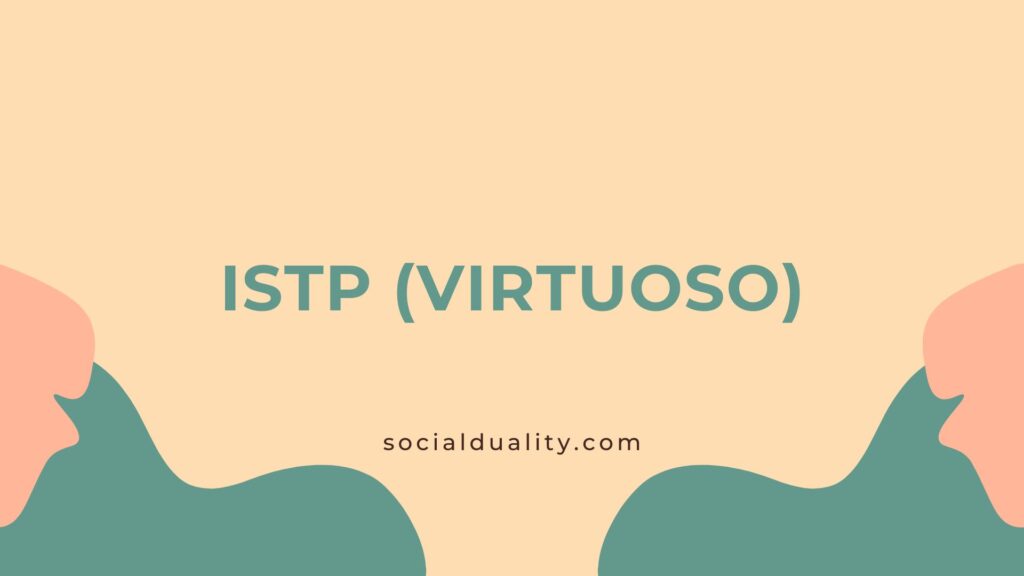The ISTP personality type, known as the Virtuoso, is full of surprises. They are introverted but love action-packed activities. These folks are practical and have fantastic mechanical skills. They solve problems with ease and enjoy tinkering with gadgets. Fun fact: they rarely follow the beaten path!
ISTPs shine in diverse work environments, and they need space to innovate. Careers like engineering or mechanics suit them well. They prefer hands-on tasks and dislike rigid rules. In their free time, ISTPs enjoy hobbies that challenge them.
In personal relationships, ISTPs value independence. They express love through actions, not words. Though private, they cherish shared adventures. So, what’s the ISTP meaning? It’s all about being genuine and spontaneous.
Key Takeaways
- ISTP personality traits include being practical and analytical. They love hands-on activities.
- In personal relationships, they value independence and express love through actions.
- ISTP strengths lie in solving practical problems and using technical skills.
- ISTPs thrive in adaptable work environments like engineering and mechanics.
- They are reserved and prefer solitary activities, unlike more emotionally-driven people.
Key ISTP Traits and Characteristics
The defining traits of the ISTP personality type are often showcased through their practical and analytical nature. They are a prime example of the Virtuoso personality type, known for their hands-on approach and love for technical skills. In personal relationships, they often maintain their independence but express emotions in unique ways. They might not always verbalize affection, but their actions speak volumes.
In the workplace, ISTPs enjoy careers that allow them to engage with the physical world directly. They thrive in dynamic environments where they can tackle problems head-on. Their adaptability and flexibility make them valuable team players, though they often prefer working alone.
ISTPs face challenges in environments with strict rules. Their logical thinking sometimes clashes with emotional situations, requiring effort in personal growth. They excel in conflict resolution by remaining calm, though they might miss emotional nuances. Famous ISTP personalities include those who have made their mark through technical expertise and innovation, much like those seen at Princeton University.
| ISTP Characteristics | Strengths | Weaknesses | Career Paths |
|---|---|---|---|
| Hands-on approach | Technical skills | Emotional sensitivity | Engineering, Mechanics |
| Logical thinking | Problem-solving | Bluntness | Forensic Science |
| Independence | Adaptability | Long-term reliability | Fast-paced environments |
| Action-oriented | Creativity | Sharing emotions | Uncertain, Flexible roles |
| Introversion | Innovation | Skepticism | Independent tasks |


ISTP Strengths and Weaknesses
Examining ISTP character traits reveals a blend of strengths and pitfalls. Their logical thinking stands out, making them adept in problem-solving. Their hands-on approach in tasks allows them to excel in technical careers. However, their independence often affects personal connections. This can make ISTP personal relationships a bit rocky. They enjoy flexibility and dislike rigid structures. In ISTP work environments, they thrive in roles that involve innovation and autonomy. But their introversion can sometimes lead to misunderstandings. They prefer showing affection through actions rather than words, which might challenge those seeking emotional expressions.
- Exceptional problem-solving skills make them valuable in crisis situations.
- Strong technical skills are evident in their career choices.
- Introversion allows deep focus but hinders social interactions.
- Their adaptability suits fast-paced environments.
- Independence supports self-reliance but complicates teamwork.
- Logical thinking can sometimes cause them to overlook emotions.
- Creativity is key in finding unique solutions.
- Their action-oriented nature drives them to tackle challenges head-on.
The Myers-Briggs Type Indicator, discussed in detail by David Pittenger, offers insights into these traits.
ISTP in Relationships and Love
In exploring how ISTPs engage in love and relationships, their hands-on approach shines. They show affection through shared experiences rather than gushy declarations. Imagine them planning an adventurous outing instead of a candlelit dinner. They prefer partners who appreciate their independence and value practical skills. Emotions can feel like a foreign land to ISTPs. Yet, they navigate the terrain with as much bravery as a knight facing a dragon.
In addressing conflicts, ISTPs rely on their logical thinking. Their problem-solving skills help them stay cool in heated moments. But, their introverted nature means they might not always voice their feelings. This can lead to misunderstandings, much like reading a book with missing pages.
ISTPs bring creativity and innovation into their career paths, thriving in work environments that value adaptability. They excel in technical fields, where their decision-making process and technical skills are put to the test. Their cognitive functions drive them to tackle challenges with gusto, making them thrive in roles that require quick thinking.
| Characteristics | ISTP in Relationships | ISTP in Career | Emotional Intelligence |
|---|---|---|---|
| Logical Thinking | Practical expressions of love | Technical careers | Logical conflict resolution |
| Creativity | Innovative date ideas | Creativity in problem-solving | Bridging emotional gaps |
| Independence | Needs personal space | Autonomy in roles | Calm in tense situations |
| Hands-on Approach | Shared activities | Hands-on tasks | Practical communication |
The Myers-Briggs Type Indicator analyzes such traits, as discussed in David Pittenger’s study.


Emotional Intelligence and Conflict Resolution
ISTPs often handle conflicts like a game of chess, plotting their moves with precision. They lean on their logical thinking and practical nature to solve issues. With their problem-solving skills, they address disputes directly and often calmly. This straightforward approach can sometimes come off as blunt, but they mean well.
However, they might not always pick up on emotional cues. They need a bit of conscious effort to understand others’ feelings. It’s like trying to read a book in a different language. They manage, but it requires more focus.
In relationships, they shine when tasks or activities are involved. Emotional exchanges might not be their forte, but they excel in action-oriented resolutions.
Here’s a short list capturing ISTPs’ conflict approach:
- Use of logical analysis in disputes.
- Relies on straightforward communication.
- Often misunderstood due to lack of emotional sensitivity.
- Prefers action-oriented solutions over emotional discussions.
- Calm demeanor in tense situations.
- Requires effort to bridge emotional gaps.
- Strength in problem-solving and practical thinking.
- Challenges in interpreting others’ feelings.
ISTP Career Paths and Work Environment
Exploring the career paths of those with this personality type, it’s evident they thrive in environments prioritizing flexibility and technical challenges. Their introversion often steers them toward roles that emphasize independence, while their problem-solving skills and technical prowess make them excellent engineers or mechanics. In a professional setting, they value autonomy over rigid structures. They have a knack for thinking on their feet, making them ideal for dynamic and fast-paced roles. Creativity and innovation are their strengths, so they excel when given the freedom to explore new ideas.
In terms of adaptability, they shine in varied situations, effortlessly switching gears. Yet, they may face challenges in teamwork, needing space to maintain their independence and autonomy. Their decision-making process is logical, ensuring practical outcomes. Famous personalities sharing this type might include those who have made significant contributions in technical fields.
| Career Path | ISTP Strength | Potential Challenge | Ideal Environment |
|---|---|---|---|
| Engineering | Technical skills | Teamwork | Flexible and dynamic |
| Mechanics | Hands-on approach | Structured settings | Autonomy |
| Forensic Science | Problem-solving skills | Emotional sensitivity | Fast-paced |
| Technical Roles | Creativity and innovation | Long-term commitments | Explorative |
| Independent Projects | Independence and autonomy | Interpreting emotions | Unpredictable |
Further insights on the impact of personality types on careers can be found in studies conducted by Princeton University.


Problem-Solving Skills and Technical Abilities
When it comes to solving problems and wielding technical skills, ISTPs shine. They apply their hands-on approach to overcome challenges, often using their intuitive grasp of mechanics. They enjoy tackling issues directly, much like a detective piecing together a puzzle. In the workplace, ISTPs thrive in environments that allow them to use their mechanical skills and creativity. They’re not fans of rigid rules, preferring spaces where they can flex their adaptability and spontaneity.
- Practical Solutions: ISTPs excel in finding tangible solutions in high-pressure situations.
- Hands-on Approach: They’re adept at fixing and tinkering, often in technical roles.
- Independence: They prefer to operate autonomously, shunning micromanagement.
- Logical Thinking: Their decisions are driven by logic, not emotions.
- Adaptability: ISTPs easily adjust to changing scenarios, making them versatile.
- Creativity: They innovate by thinking outside the box.
- Teamwork: While independent, they contribute uniquely in team settings.
In ISTP-friendly environments, their action-oriented mindset and technical expertise become assets. They’re like magicians with a toolbox, transforming problems into straightforward solutions, ensuring tangible outcomes.
Comparing ISTP with Other Personality Types
Exploring the traits of ISTPs alongside others, they stand out with their logical thinking and a hands-on approach. Unlike INTJs, who prefer structured systems, ISTPs thrive in environments with fewer constraints, showcasing their adaptability and flexibility. They excel in dynamic settings, as seen in ISTP-friendly workplaces where technical skills and problem-solving shine.
In relationships, ISTPs differ from INFJs, who focus on emotional connections. They prioritize shared activities over deep conversations. This approach can lead to challenges in emotional intelligence, but their straightforward nature aids in conflict resolution. In contrast, ENFJs are more empathetic, while ISTPs focus on practicality.
Career paths for ISTPs often include technical fields, unlike INTPs who might lean towards theoretical pursuits. Their decision-making process is action-oriented, lending itself well to roles demanding quick thinking. Personal growth for ISTPs involves balancing independence with teamwork, often succeeding when autonomy is respected.
A glance at famous personalities reveals ISTPs’ creativity and innovation, standing apart from more introverted types. Their adaptability in relationships and careers reflects a unique blend of strengths and challenges.
| Aspect | ISTP Traits | Contrast with Other Types |
|---|---|---|
| Work Environment | Thrives in dynamic settings | INTJ prefers structured systems |
| Relationships | Prefers shared activities | INFJ focuses on emotional bonding |
| Career Paths | Technical and action-oriented | INTP opts for theoretical fields |
| Conflict Resolution | Straightforward approach | ENFJ uses empathy |
| Innovation | Creative and hands-on | More introverted types |


Conclusion
ISTPs bring a unique blend of strengths to various aspects of life. Their ability to solve problems with a practical outlook is a major asset in both personal and professional spheres. In relationships, they may not be the most verbally expressive, but they show dedication through thoughtful actions. Their preference for shared activities over words can make their bonds special and memorable.
In the workplace, ISTPs excel in roles that demand quick thinking and technical skills. They thrive where they can be independent and hands-on. This independence comes naturally, but it also means they need time to themselves. This balance helps them to recharge and maintain their creativity. Understanding and appreciating their distinctive approach can lead to deeper connections and more effective collaborations with ISTPs.
What defines an ISTP’s approach to relationships and love?
ISTPs value personal space and often express love through actions rather than words. They prefer shared activities over verbal expressions. Their independence is crucial, so they need partners who respect that. Commitment might be challenging, but they invest in relationships that align with their interests.
How do ISTPs handle conflicts and emotional situations?
ISTPs rely on logic and straightforward communication during conflicts. They stay calm under pressure, which helps in resolving disputes. However, they may find it hard to understand others’ emotions, needing effort to bridge emotional gaps.
What are the ideal career paths for an ISTP?
ISTPs excel in roles requiring technical skills and problem-solving. Careers in engineering, mechanics, or forensic science suit them well. They thrive in unpredictable, fast-paced environments with independence and flexibility.
What are the typical strengths and weaknesses of ISTPs?
ISTPs are creative problem-solvers with exceptional technical skills. They value straightforward communication and live in the present. However, their independence can make them hard to know, and they might appear insensitive when empathizing.
How do ISTPs differ from other personality types?
ISTPs are reserved and prefer solitary activities. Their hands-on, logical approach sets them apart from more abstract or emotionally-driven types. Though adaptable and spontaneous, they can be unpredictable in commitments and relationships.


